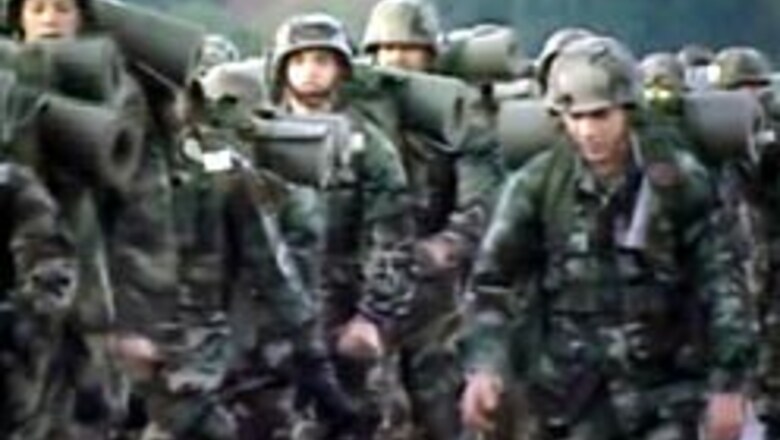
views
Washington: Less than half of Americans think the United States can win the war in Iraq, according to a CNN poll released on Tuesday.
Forty-six per cent said the United States could not win the war in Iraq.
And although 46 per cent also said the United States still could win, the results mark the first time since the war began four years ago that a majority of Americans said the United States is not capable of winning.
An even smaller percentage, 37 per cent, said the United States will in fact win the war in Iraq; 54 per cent said it will not. An all-time low of 29 per cent said things were going well in Iraq.
Fifty-four per cent of Americans said the Bush administration deliberately misled Americans about whether Iraq had weapons of mass destruction before the US-led invasion.
Nearly six in 10 of those polled want to see US troops leave Iraq either immediately or within a year. In addition, more people would prefer Congress to run US policy in Iraq than President Bush.
The poll was conducted on Friday through Sunday by Opinion Research Corp. Pollsters interviewed 1,027 adults for the survey, which had a sampling error of plus or minus three percentage points.
Though support for Bush's decision to dispatch additional troops to Iraq grew to 37 per cent - up five per cent from a mid-January poll - 52 per cent said Congress should block funding for the new deployment. Forty-three per cent opposed such a move.
Bush announced in January he was deploying another 21,500 US troops to Iraq to crack down on the country's sectarian warfare and the Sunni Arab insurgency in the country's west.
The White House approved the deployment of another 4,400 support troops over the weekend, largely to handle an expected increase in the number of Iraqi prisoners.
The decision remains unpopular, according to the latest poll, but Opposition has declined since Bush announced it. This week's survey found 59 per cent opposed the President's troop increase, down from 66 per cent on January 11.
The Democratic leadership in Congress has opposed the deployment, with the support of a handful of Republicans. But efforts to use congressional control over spending to rein in the president have split the Democrats, particularly in the House of Representatives.
Weighing in on a withdrawal
Twenty-one percent of responders support an immediate withdrawal from Iraq and 37 per cent said troops should come home within a year. Another 39 per cent said the troops should stay in Iraq as long as needed.
PAGE_BREAK
Democratic leaders plan to add a demand for withdrawal by fall 2008 - or by the end of this year, if Bush is unable to show that the Iraqi government is meeting benchmarks for political progress - to the president's emergency request for an additional $100 billion in war spending.
In a speech on Monday to the American Israeli Public Affairs Committee, Vice President Dick Cheney said even discussing withdrawal tells "the enemy to watch the clock and wait us out."
House Speaker Nancy Pelosi, D-California, shot back that Cheney and Bush are advocating an "open-ended commitment" of US troops against the advice of military leaders.
The White House and congressional Republicans have warned Democratic leaders against plans that would "micromanage" US commanders in Iraq.
But the latest survey suggests Americans are more receptive to having Congress take the lead, with 47 per cent saying Congress should be "primarily responsible" for setting war policy.
Thirty-three percent said the President should be primarily responsible for setting the country's course.
Fifty nine per cent said a Democratic Party-controlled Congress was a good thing, down from 67 per cent in November, but up from 58 per cent in January.
About 46 per cent of those polled said they approve of how Pelosi is handling her job, down from 51 per cent in January.
Forty-seven percent say they approve of what the Democratic leaders on the whole have done so far this year.
A slim majority (51 per cent) reported a favourable opinion of the Democratic Party, compared to 47 per cent who view the Republican Party favourably.
The questions regarding political parties were asked of a half-sample and had a sampling error of plus-or-minus 4.5 per centage points.















Comments
0 comment